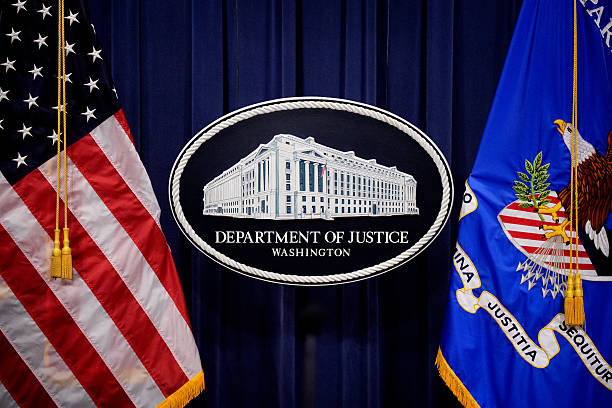Federal Jury Convicts Steuben County Man of Economic Espionage
ROCHESTER, N.Y. — In a significant case of economic espionage, a federal jury has found Ji Wang, a 63-year-old man from Painted Post, New York, guilty of stealing critical U.S. technology. His actions revolved around sensitive research on Fiber Lasers conducted by Corning Incorporated, particularly during his involvement in a military defense project. This case sheds light on the broader implications of industrial espionage and the threats posed to national security.
Background on Ji Wang
Ji Wang was born in China and immigrated to the United States in 1998. His career took off when he began working for Corning Incorporated, a global leader in glass and ceramics manufacturing known for its cutting-edge technology. Between 2002 and 2007, Wang was engaged in a joint research and development project funded by the Defense Advanced Research Projects Agency (DARPA) and Corning. This ambitious initiative had a budget of $11.4 million and aimed to develop advanced optical fibers suitable for high-powered lasers, designed for military and commercial applications.
The DARPA Project and Its Importance
The DARPA project where Wang was involved aimed to push the boundaries of laser technology. The initiative focused on creating laser weapons intended for defense purposes, specifically targeting drones and missiles. As military technology evolves, the need for advanced optical fibers has become critical, and this particular project represented substantial potential for enhancing U.S. defense capabilities.
Theft of Sensitive Information
According to the Department of Justice, on or around July 1, 2016, Wang committed a serious breach of trust. He stole hundreds of files that contained non-public data generated during the DARPA-funded project. These files included trade-secret manufacturing technology that could enable him to recreate a variety of specialty optical fibers, particularly for high-power laser applications.
Connection to the Thousand Talents Plan
Remarkably, just ten days before Wang’s theft, he had submitted an application for China’s Thousand Talents Plan Award. This initiative was designed to lure experts in science and technology from around the world to bolster China’s capabilities in those fields. Wang’s ambitious application indicates a premeditated effort to benefit from the sensitive information he would later steal.
Negotiations for a Business Venture in China
Wang’s aspirations didn’t stop at mere application; he was also in discussions with Chinese government officials to establish a specialty fiber business in China. His business proposals notably included plans to utilize specialty fibers for military applications. If successful, this venture could have yielded tens of millions of dollars in investment funds. These negotiations unfolded between 2014 and 2017, raising concerns about the potential impact on U.S. national security.
Law Enforcement Intervention
The United States law enforcement agencies, particularly the FBI, were quick to recognize the threat posed by Wang’s actions. Their investigation effectively disrupted his plans before he could exploit the stolen technology or launch his business. The swift response from authorities underscores the importance of vigilance in protecting critical technological advancements.
Convictions and Potential Sentencing
Wang faced multiple charges, ultimately being convicted of two counts of economic espionage, one count of theft of trade secrets, one count of attempted economic espionage, and one count of attempted theft of trade secrets. The consequences of these actions are severe; economic espionage carries a maximum penalty of 15 years in prison, while theft of trade secrets can result in 10 years. Sentencing is scheduled for April 15, 2026.
Government Response and Statements
The case has drawn attention from key figures in national security and law enforcement. Assistant Attorney General for National Security John A. Eisenberg, alongside U.S. Attorney Michael DiGiacomo for the Western District of New York, announced the verdict. This high-profile case serves as a reminder of the ongoing battle against economic espionage and the efforts to safeguard America’s technological edge.
Implications for National Security
Wang’s conviction is not just about individual accountability; it reflects broader concerns about economic espionage’s role as a national security threat. As industries become increasingly interconnected globally, the lines between innovation and industrial theft are often blurred. Protecting sensitive technology and intellectual property remains a priority for both government agencies and private sectors.
Through this case, we see a clear illustration of the complexities surrounding modern technological development and the lengths to which individuals may go to exploit advancements for personal gain.



